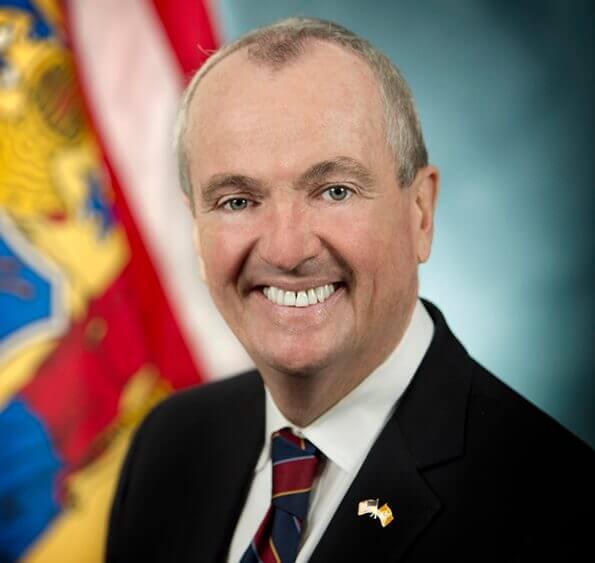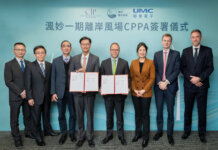The State of New Jersey has released a draft energy master plan (EMP), which provides an initial blueprint for the total conversion of the state’s energy profile to 100% clean energy by 2050.
The plan defines clean energy as carbon-neutral electricity generation and maximum electrification of the transportation and building sectors to meet or exceed greenhouse-gas emissions reductions of 80% by 2050 (relative to 2006 levels). Last year, Gov. Phil Murphy, D-N.J., signed Executive Order No. 28, directing state agencies to develop the EMP.
According to the state, the new EMP encompasses a “dramatically broader scope” than previous EMPs and features a series of seven strategies:
Strategy 1: Reducing Energy Consumption and Emissions from the Transportation Sector, including encouraging electric vehicle adoption, electrifying transportation systems, and leveraging technology to reduce emissions and miles traveled.
Strategy 2: Accelerating Deployment of Renewable Energy and Distributed Energy Resources with a Focus on Historically Underserved Populations by developing offshore wind, community solar, a successor solar incentive program, energy storage, energy efficiency, smart inverters and non-wires solutions. It also involves opening electric distribution companies’ circuits for distributed energy resources (DERs) and developing low-cost loans or financing for DERs.
Strategy 3: Maximizing Energy Efficiency and Conservation, and Reducing Peak Demand, including enacting 0.75% and 2% utility energy efficiency standards, expanding New Jersey’s Clean Energy Program, adopting new clean energy and energy efficiency financing mechanisms, and strengthening building and energy codes and appliance standards.
Strategy 4: Reducing Energy Use and Emissions from the Building Sector through decarbonization and electrification, the expansion of statewide net-zero-carbon homes incentive programs, and the development of EV Ready and Demand Response Ready building codes.
Strategy 5: Modernizing the Grid and Utility Infrastructure by encouraging utilities to establish integrated distribution plans and adopting non-wires solutions, modifying the current ratemaking process and piloting alternative rate design, and instructing gas utilities to prioritize the replacement of pipelines leaking methane, among other tactics.
Strategy 6: Supporting Community Energy Planning and Action in Underserved Communities through incentivizing local, clean power generation, prioritizing clean transportation options in these communities, and supporting municipalities in establishing community energy plans.
Strategy 7: Expanding the Clean Energy Innovation Economy by developing a workforce needs assessment; expanding the Clean Energy Job Training program; and exploring a WIND Institute (i.e., providing a resource for offshore wind workforce training, R&D and investments), a New Jersey Green Bank, a Carbon-Neutral Technology Incubator, and a Clean Buildings Hub.
The statewide, multi-agency effort is led by New Jersey Board of Public Utilities (NJBPU) in collaboration with New Jersey Department of Environmental Protection, the New Jersey Department of Transportation, the New Jersey Economic Development Authority, and the New Jersey Department of Community Affairs.
The NJBPU is concurrently developing an integrated energy plan, which will model scenarios reflecting the draft EMP’s strategies to identify least-cost pathways to achieve clean energy by 2050. The final EMP will include this modeling, as well as further stakeholder input, other studies, and dates and metrics that are not yet reflected in the draft.
NJBPU will also host public meetings to collect feedback. Comments are due by Sept. 16, and the meeting dates are as follows:
- July 17 – Trenton (State House)
- Aug. 8 – Newark (Seton Hall)
- Sept. 12 – Camden (Kroc Center)
Those who are unable to attend the meetings can submit comments electronically by sending an email to emp.comments@bpu.nj.gov and using the subject line “2019 Draft Energy Master Plan.”
“The draft energy master plan is a comprehensive roadmap toward achieving our goal of a 100 percent clean energy economy by 2050,” states Murphy. “The strategies set forth in this draft plan will foster economic growth by creating thousands of jobs in New Jersey’s energy, building and transportation sectors. Today’s draft plan is a critical step forward in reducing the effects of climate change and securing our state’s clean energy future for the benefit of all New Jerseyans and for generations to come.”
“Just as we have delivered on our many other clean energy commitments, we are proud to put forth this comprehensive draft plan today, which reflects input from hundreds of stakeholders,” adds Joseph L. Fiordaliso, NJBPU president. “I am confident that it will serve as a roadmap to building a cleaner, healthier, more sustainable energy future for our state to establish the lowest-cost pathway to 100 percent clean energy by 2050.”
Applauding the release of the draft EMP, Liz Burdock, president and CEO of the Business Network for Offshore Wind, says the group is “particularly interested in the expansion of the Clean Energy Job Training program and the establishment of the WIND Institute, and will be working with our network members and the New Jersey planning and environmental community to attend the public meetings and submit testimony on this ambitious program.”
“Combined with the NJ Offshore Wind Strategic Plan draft plan due in September and the state’s first offshore wind solicitation award later this month,” Burdock adds, “the draft EMP demonstrates New Jersey’s short-term and long-term planning and commitment to offshore wind energy.”
Ed Potosnak, executive director of the New Jersey League of Conservation Voters, says Murphy is “continuing to deliver on his commitment to make New Jersey the greenest state in America.”
“We applaud the administration for their tireless work to realize the governor’s 100 percent clean energy vision and catalyzing good local jobs in the clean energy economy,” he continues. “We look forward to working to hone the document and incorporate upcoming modeling to identify least-cost pathways.”




